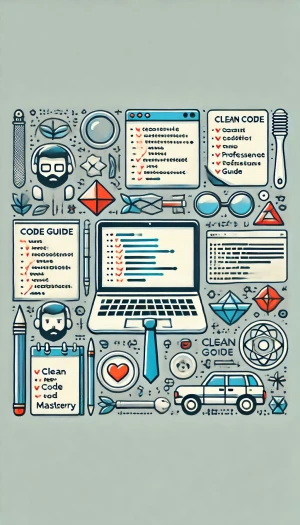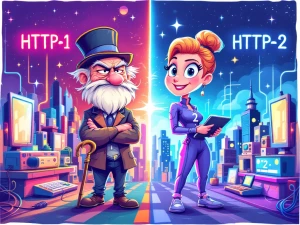الدورات
title
What Is a Backend Developer Responsible For?

Introduction
In the world of web development, creating a successful website or application requires both frontend and backend expertise. While frontend developers focus on the user interface, backend developers handle the “behind-the-scenes” functionality that makes web applications work seamlessly.
This article explores what backend developers are responsible for, their skills, and why they are essential for building robust web applications.
1. Understanding the Role of a Backend Developer
A backend developer is responsible for the server-side of web applications. They build and maintain the technology that powers the database, server, and application logic. Essentially, they ensure that everything the user interacts with on the frontend works correctly behind the scenes.
Backend developers also work closely with frontend developers to connect user-facing elements to server-side logic, APIs, and databases.
2. Core Responsibilities of a Backend Developer
a) Server and Application Logic
Backend developers write the logic that powers web applications. This includes:
- Processing requests from the frontend.
- Handling business logic.
- Managing application workflows.
Example: When a user submits a form, the backend validates the input, stores the data in the database, and returns a response.
b) Database Management
Managing databases is a critical responsibility. Backend developers:
- Design and maintain database schemas.
- Optimize queries for performance.
- Ensure data integrity and security.
Common Databases: MySQL, PostgreSQL, MongoDB, Oracle.
c) API Development and Integration
Backend developers create APIs (Application Programming Interfaces) to allow the frontend and other services to communicate with the backend.
Example: RESTful APIs or GraphQL endpoints that return user data, process payments, or manage inventory.
d) Security Implementation
Backend developers ensure that applications are secure from threats. Responsibilities include:
- Authentication and authorization (login systems, user roles).
- Data encryption and secure communication (HTTPS/SSL).
- Preventing attacks like SQL injection, XSS, or CSRF.
e) Performance Optimization
They optimize the server-side performance to ensure fast response times, including:
- Database query optimization.
- Caching frequently accessed data.
- Load balancing and scaling the application.
f) Deployment and Maintenance
Backend developers are responsible for:
- Deploying applications to servers or cloud platforms (AWS, Azure, Google Cloud).
- Monitoring server performance and uptime.
- Troubleshooting errors and maintaining backend infrastructure.
3. Essential Skills for Backend Developers
To excel in backend development, a developer needs a combination of programming, database, and server management skills:
- Programming Languages: Python, PHP, Java, Node.js, Ruby, Go.
- Database Management: SQL, NoSQL, database optimization.
- API Knowledge: REST, GraphQL, JSON, XML.
- Server and Hosting: Linux, Apache, Nginx, cloud platforms.
- Security Practices: Authentication, encryption, data protection.
- Version Control: Git and GitHub for collaborative development.
4. Backend vs. Frontend Developers
FeatureBackend DeveloperFrontend DeveloperFocusServer, database, application logicUser interface and user experienceLanguagesPython, PHP, Java, Node.jsHTML, CSS, JavaScript, React, VueResponsibilitiesAPIs, security, data processingLayout, design, interactivityGoalEnsure app functionalityEnsure app usability and appearance
Backend developers power the application, while frontend developers make it visually accessible and interactive.
5. Why Backend Development Is Important
Backend development ensures that web applications are:
- Functional: Users can perform actions like login, search, and purchase.
- Secure: Sensitive data is protected from hackers.
- Scalable: Applications can handle growing numbers of users and data.
- Reliable: Websites and apps function smoothly without crashes or errors.
Conclusion
A backend developer is responsible for the core functionality, database management, security, and performance of web applications. They work behind the scenes to ensure that the frontend has the data and logic it needs to provide a seamless user experience.
Understanding backend responsibilities is essential for anyone pursuing a career in web development, whether as a backend specialist or full-stack developer.






